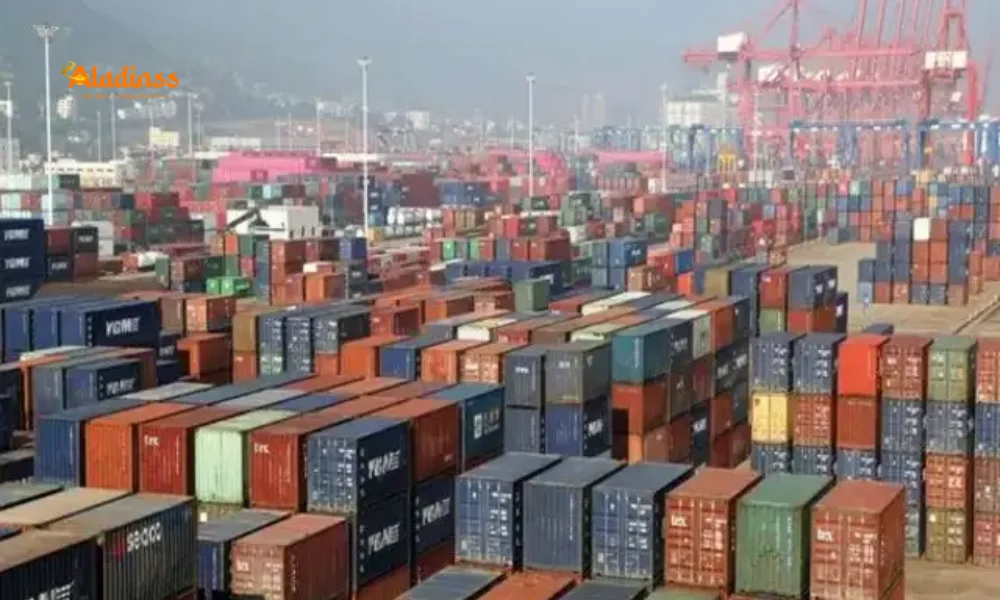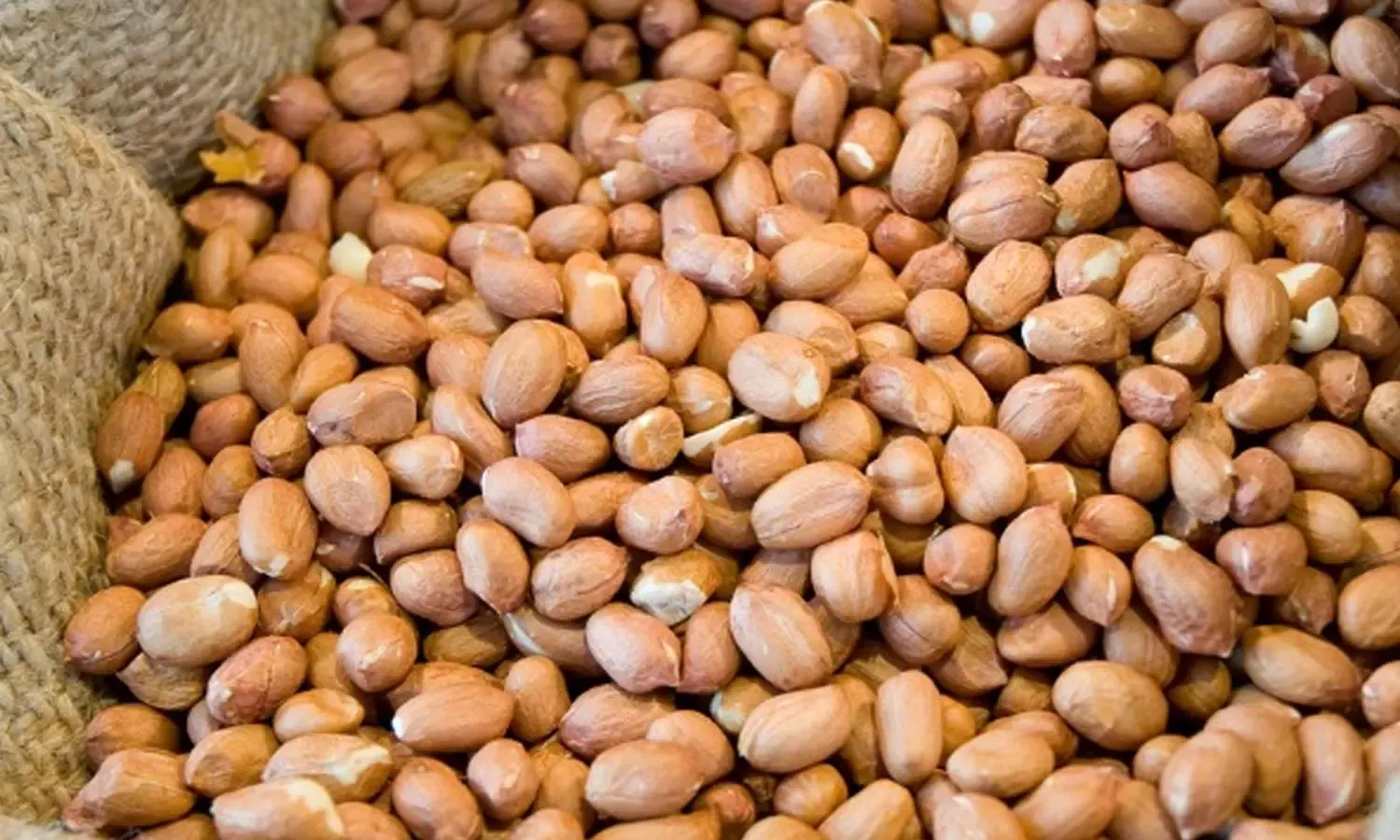Indonesia Suspends Peanut Imports from India Over Aflatoxin Concerns

Indonesia Suspends Peanut Imports from India Over Aflatoxin Concerns
In a significant development impacting global trade, Indonesia has announced a suspension of peanut imports from India due to concerns over high levels of aflatoxin B1, a toxic substance known to pose serious health risks. This decision, effective from September 3, 2025, has sent shockwaves through the Indian export market, particularly affecting traders who rely heavily on the Indonesian market for peanut exports. The move comes at a time when Indian goods are already facing challenges in international markets, including a recently imposed 50 percent tax on Indian imports by the United States, further complicating the trade landscape.
Background of the Suspension
The Indonesian Quarantine Authority (IQA) issued a statement on August 27, 2025, highlighting that Indian peanuts have been found to contain elevated levels of aflatoxin B1, a carcinogenic compound produced by certain molds, particularly Aspergillus flavus and Aspergillus parasiticus. Aflatoxin B1 is classified as a Group 1 carcinogen by the International Agency for Research on Cancer (IARC), with strong links to liver cancer and other health issues. The IQA’s decision to suspend imports is aimed at protecting public health and ensuring compliance with stringent food safety standards.
Indonesia is a major destination for Indian peanut exports, accounting for approximately one-third of India’s total groundnut exports, with an annual volume exceeding 225,000 tonnes valued at around $274 million. The suspension is expected to disrupt this significant trade relationship, raising concerns among Indian exporters and farmers who depend on this market for their livelihoods.
Details of the Import Ban
According to the IQA, the suspension will take effect seven days after the announcement, allowing consignments with bills of lading issued up to September 3, 2025, to be accepted. However, these shipments will undergo rigorous inspection and retesting upon arrival in Indonesia to ensure compliance with safety standards. The IQA has emphasized that any consignments failing to meet the required aflatoxin levels will be rejected, underscoring the seriousness of the issue.
This is not the first time Indonesia has raised concerns about aflatoxin contamination in Indian peanuts. In 2022, a similar suspension was imposed due to non-compliance with testing standards and high aflatoxin levels. The recurring issue highlights ongoing challenges in India’s agricultural export sector, particularly regarding quality control and testing infrastructure.
Aflatoxin B1: A Public Health Concern
Aflatoxins are toxic metabolites produced by molds that thrive in warm, humid conditions, making crops like peanuts, maize, and tree nuts particularly susceptible. Aflatoxin B1, the most potent among them, is known for its genotoxic and carcinogenic properties, posing risks of liver cancer, immunosuppression, and growth impairment, especially in children. The European Union, for instance, has set strict maximum limits for aflatoxin B1 at 2 µg/kg for peanuts intended for human consumption, reflecting the global emphasis on minimizing exposure to this toxin.
In India, the issue of aflatoxin contamination has been a persistent challenge, particularly in regions with tropical and subtropical climates. Poor pre-harvest and post-harvest practices, such as improper storage and inadequate drying, contribute to mold growth and aflatoxin production. The problem is compounded by inconsistencies in testing facilities, with some laboratories lacking the advanced equipment needed to accurately detect aflatoxin levels.

Impact on Indian Exporters
The suspension of peanut imports by Indonesia is a major blow to Indian exporters, who are already grappling with the 50 percent tax imposed by the United States on Indian goods since August 27, 2025. The U.S. tax has affected various sectors, including agriculture, textiles, and electronics, adding pressure on India’s export economy. The Indonesian ban further exacerbates these challenges, as peanuts are a significant agricultural export for India, with key markets in Southeast Asia, Europe, and the Middle East.
Traders and exporters are concerned about the financial implications of the ban, as Indonesia represents a substantial portion of India’s peanut export market. The loss of this market could lead to surplus stock, reduced prices, and economic losses for farmers and exporters. Additionally, the requirement for re-inspection of shipments arriving in Indonesia may increase costs and cause delays, further straining the supply chain.
Challenges in Testing and Compliance
The IQA’s concerns about aflatoxin levels are compounded by issues with India’s testing infrastructure. In April 2025, the Agricultural and Processed Food Products Export Development Authority (APEDA) issued an advisory urging testing laboratories to adhere strictly to protocols for sampling, analysis, and shipment of peanuts. However, Indonesian officials have raised concerns about the reliability of some Indian laboratories, with one facility in Chennai criticized for inadequate equipment and procedures. This has led to calls for more robust quality control measures and the accreditation of additional laboratories to meet international standards.
India’s history of aflatoxin-related trade restrictions is not new. In 2017, the European Union flagged Indian basmati rice exports for similar issues, resulting in a loss of market share. The recurring problem underscores the need for improved agricultural practices and investment in advanced testing facilities to ensure compliance with global food safety regulations.
Global Context and Regulatory Standards
Aflatoxin contamination is a global concern, particularly in tropical and subtropical regions where climatic conditions favor mold growth. Countries like Taiwan, the United States, and the European Union have established stringent maximum residue levels (MRLs) for aflatoxins in food products. For instance, the U.S. sets a limit of 20 µg/kg for aflatoxin B1 in peanuts, while the EU enforces a stricter limit of 2 µg/kg. Indonesia’s decision aligns with these global efforts to minimize health risks associated with aflatoxin exposure.
Research has shown that cooking methods such as roasting, pressure cooking, and frying can reduce aflatoxin levels in peanuts, but complete elimination remains challenging. These methods, while effective at the household level, are not always feasible for large-scale commercial exports, highlighting the need for better pre-harvest and post-harvest management practices.
Future Implications and Solutions
The suspension of peanut imports by Indonesia could have long-term implications for India’s agricultural export sector. To regain access to the Indonesian market, India must address the root causes of aflatoxin contamination, including improving farming practices, enhancing storage facilities, and upgrading testing laboratories. Collaboration between APEDA, exporters, and international regulatory bodies could help establish standardized protocols to meet global food safety requirements.
Additionally, public awareness campaigns and training programs for farmers could promote better agricultural practices, such as timely harvesting, proper drying, and controlled storage conditions. Investment in modern technology, such as high-performance liquid chromatography (HPLC) systems for aflatoxin detection, could also strengthen India’s position in the global market.
As the global demand for safe and high-quality food continues to grow, India must prioritize compliance with international standards to maintain its reputation as a reliable exporter. The Indonesian ban serves as a wake-up call for stakeholders to address systemic issues in the agricultural supply chain and ensure the safety of exported products.
Comment / Reply From
No comments yet. Be the first to comment!











